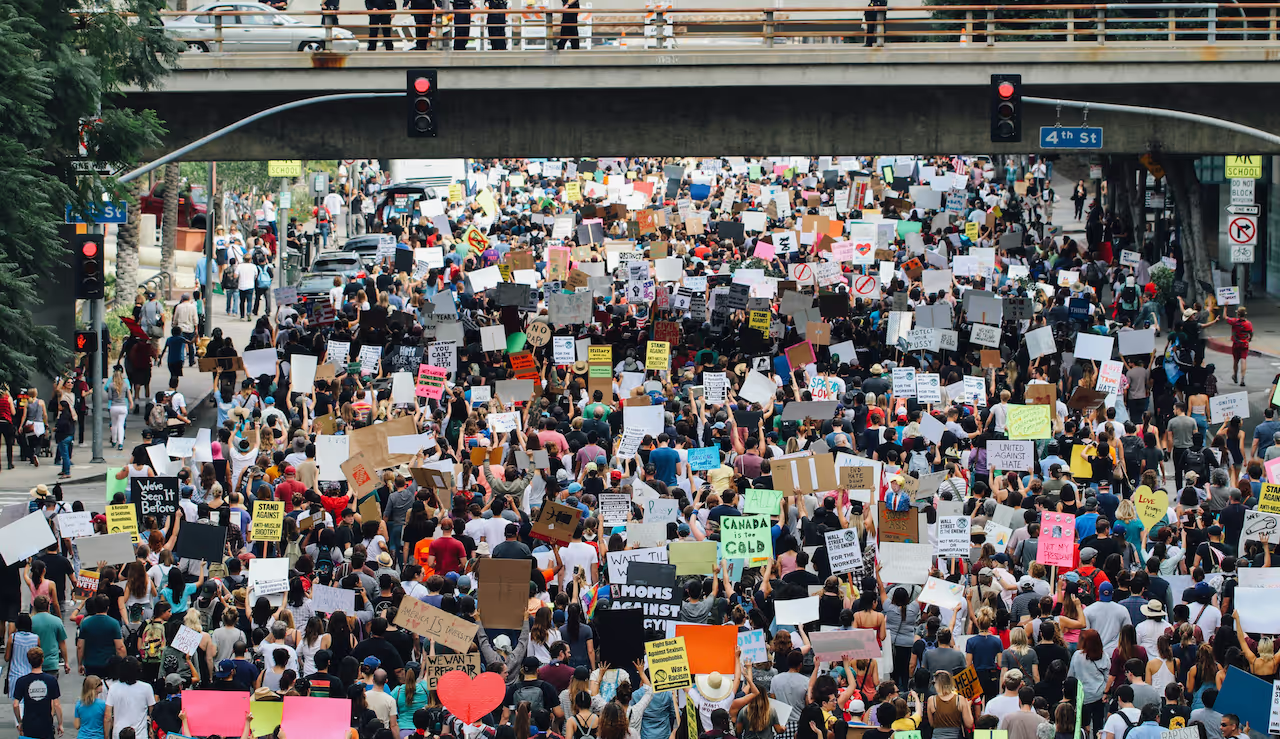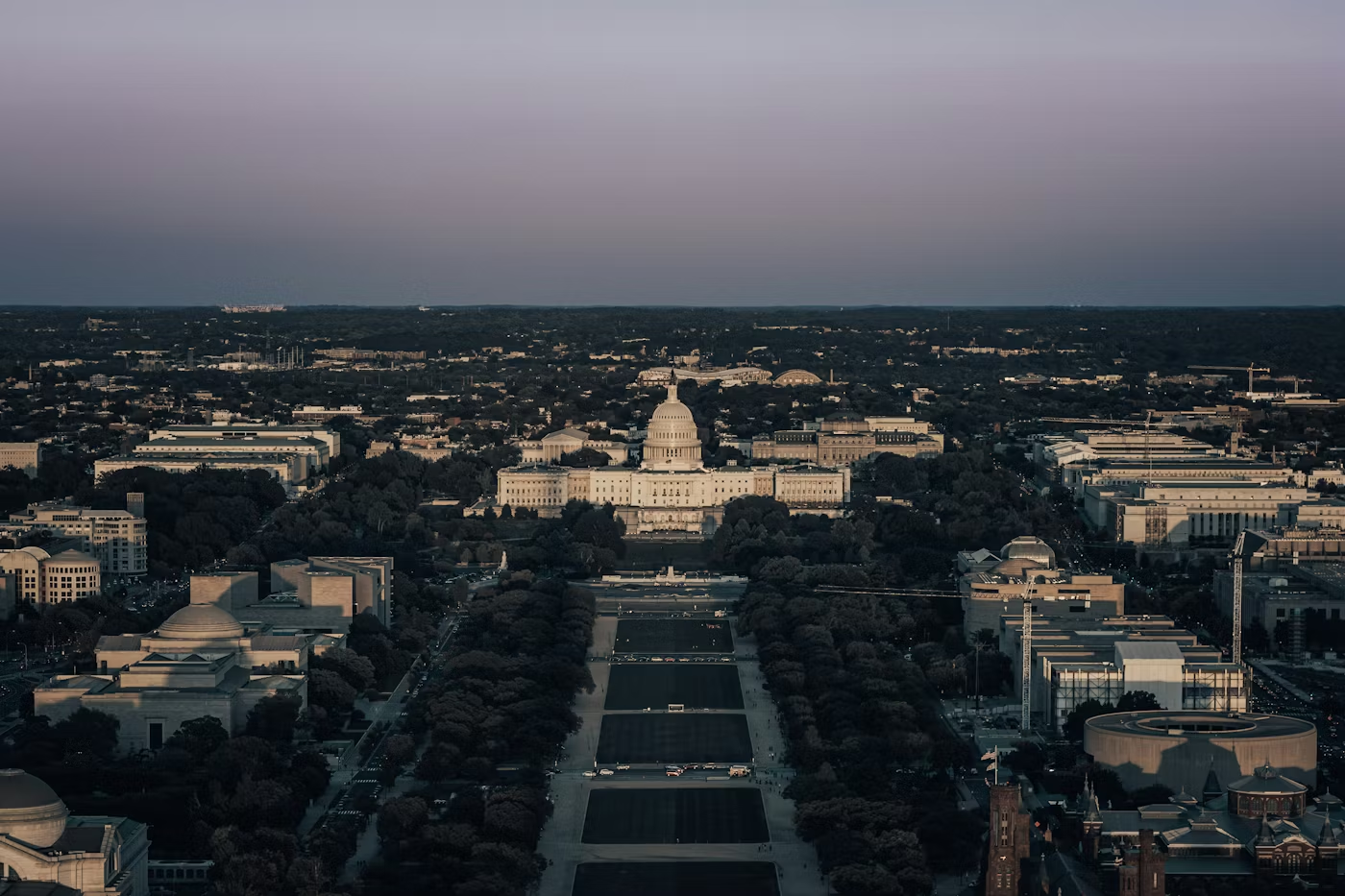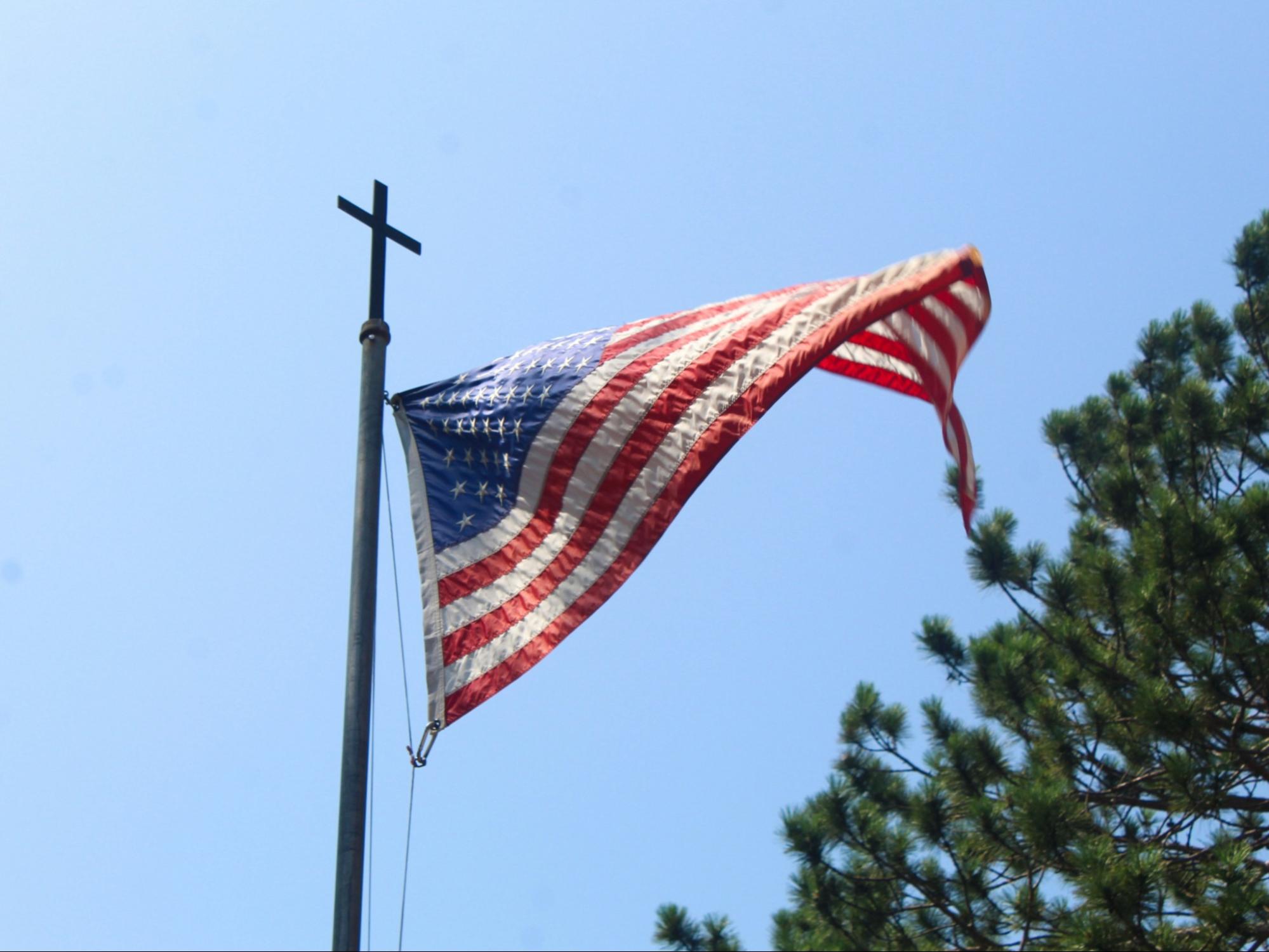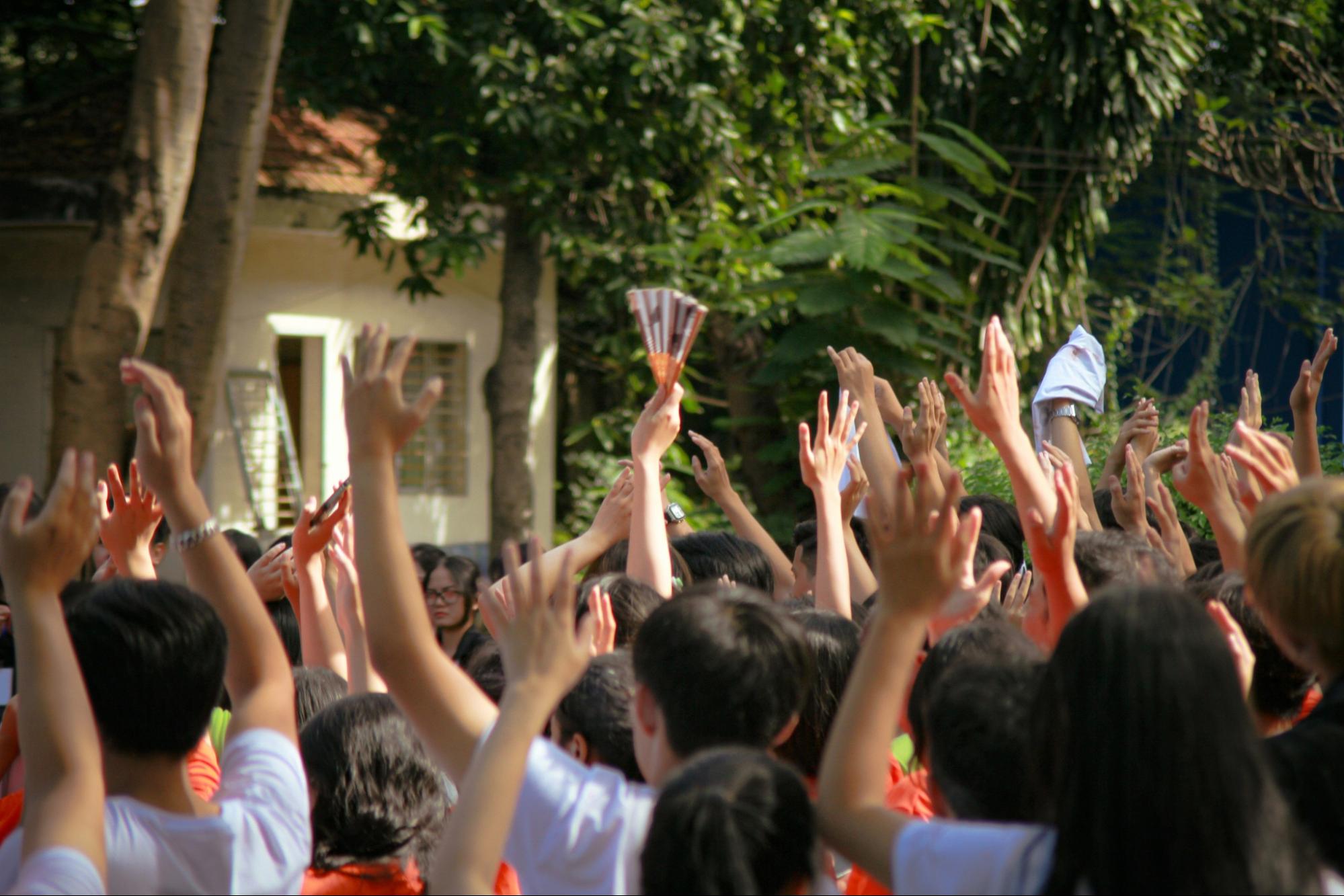
Advocacy
Bringing “The Faithful Fight” to your community
The Faithful Fight toolkits offer religious communities an array of strategies to counter authoritarianism in their local communities.
Throughout history — on the global stage and in states across America — people of faith have played a crucial role in protecting communities and pushing back against authoritarian systems. As an authoritarian president consolidates power in the United States, now is the time for people of faith in the United States to organize and mobilize to protect the rights and well-being of all.
You can access the toolkits here.
Originally developed by Protect Democracy and The Horizons Project, Interfaith Alliance is hosting a virtual training on June 23, 2025 with the toolkit authors to encourage local communities across the country to implement the strategies they shared.
This guide is aimed at helping equip you to bring The Faithful Fight to your local community. You don’t need any special qualifications to help promote the toolkits. By virtue of being here and reading this guide, you’re showing leadership in the pro-democracy movement and we encourage you to do anything possible to help disseminate the toolkits. Whether you lead a large congregation, or have not stepped foot in a house of worship in a long time, or somewhere in between, there’s a role for you in the pro-democracy faith movement.
First Steps
Before planning a Faithful Fight meeting, consider the following first steps:
- Take time to carefully read and consider each of the toolkits.
- Reflect on the important ways the fight against authoritarianism and for democracy is manifesting itself in your local community. The Faithful Fight toolkits were written for a national audience, but adapting them for your local context is important. What are the key issues happening locally? Who are the important local leaders (school board members, business leaders, civic leaders) who can be influenced? What are the most important ways you can make an impact?
- Connect with existing local interfaith organizations (such as Interfaith Alliance affiliates) in your community. Would they be interested in partnering with you on an event? Before starting something new, it’s important to be aware of what existing work is happening in your community and how you could be involved with it.
- Start putting together a team. Ideally, the team will include multiple religious perspectives to model the multi-faith democracy we are defending. Talk to your friends, colleagues, and other members of your house of worship to see who might be interested in joining you in The Faithful Fight.
Planning A Local Faithful Fight Meeting
Now that you have an idea of your mission in disseminating The Faithful Fight in your local community, it’s time to hold the event!
- Find a host institution or host the meeting yourself. Will a local congregation be willing to host the event? If not, consider hosting it in your home or at a community center or in a park. The meeting could also take place as part of a regularly scheduled group meeting that will have a built-in audience for you.
- Create an outreach timeline. The idea of religious communities countering authoritarianism will be new to many people you talk to initially. Give yourself time to have one-on-one conversations and for people to read the toolkits to get a sense of the project.
- Spread the word! Invite religiously diverse community members to come, ask them to RSVP, and follow up with them beforehand to ensure their attendance. Make sure to make it clear that it’s not a worship or religious service. This is a meeting about strategies for faith communities to counter authoritarianism, not an event to proselytize or practice any one particular religion.
- Adapt the sample agenda below.
- Distribute the toolkits in advance so attendees can digest the large amount of material before the meeting, but also bring printed copies to the meeting itself as a reference.
- Consider attendees’ physical needs and accessibility. If you’re expecting a large group, consider having a microphone and speaker to make sure everyone can hear easily.
- Prepare as the facilitator. Talking about religion can be a complicated subject. The Faithful Fight meetings are not meant to foster debates about the nature of religion, or to criticize religious traditions. When needed, redirect the conversation back to the core teaching of the toolkits: “Religious symbols, slogans, rituals, organizing infrastructure and communications networks have been important sources of power for autocrats and pro-democracy movements alike.” That’s why we’re gathering and mobilizing for the pro-democracy movement.
Agenda
- Why are we gathering? Welcome everyone and outline the goals for the meeting, including: a) Get to know each other; b) Consider the strategies outlined in The Faithful Fight and which make sense for our community; c) Plan and commit to your first action; and d) Build the pro-democracy faith movement locally.
- How are we each showing up? Have each person in attendance introduce themselves and why they’re interested in the pro-democracy faith movement. Model this introduction by connecting your activism with your own faith tradition.
- What strategies are covered in The Faithful Fight? While the intention is for attendees to read the toolkits before the meeting, it’s important to make sure everyone is on the same page about the list of topics:
- Advocating for a multiracial democracy
- Building bridges across difference
- Protecting cyber and physical security
- Defending religious liberty
- Organizing and training for collective action
- Providing and advocating for mutual aid
- Welcoming the Stranger
- Practicing noncooperation and civil disobedience
- Protecting government of the people
- Where is there energy? Gauge what people are most interested in discussing. Break into small groups if there is varied interest and enough space. Ask questions (or ask small group facilitators to ask them):
- What issues are showing up most for us locally?
- Which of these strategies excites us the most and can lead us to action?
- Is there a gap that we can meet in what strategies are being deployed by existing faith-based organizations?
- Now what? Make a plan for how to implement one or more of the strategies within existing congregations, organizations or volunteer groups. Ask for volunteers to take on a specific project that will lead to follow up meetings and planning. This initial meeting is meant to introduce the topic of The Faithful Fight locally and begin a conversation.
- Follow-up is important. A few days after the meeting, thank everyone for attending and send notes about what was discussed. Communicate any shared outcomes.
Transcript

Interfaith Alliance Calls on DOJ to Prosecute ICE Cruelty
Interfaith Alliance joined over forty civil-rights groups in urging the DOJ’s Civil Rights Division to independently investigate recent federal shootings of civilians by immigration agents, and shortly after DOJ announced a civil-rights probe into the Minneapolis killing of Alex Pretti by federal officers

The Trump Administration’s Latest Attacks on Immigrants Threaten Religious Freedom
A Texas Episcopal priest’s detention by ICE is a concerning development in the midst of the Trump administration's attack on religious freedom. It shows how unchecked enforcement threatens our faith communities and furthers an already eroding public trust.


